China reports a surge in travel and consumption during the Lunar New Year holiday season, indicating a rebound in the economy; however, average tourism-related spending per trip remains below pre-pandemic levels, reflecting weak consumer confidence.
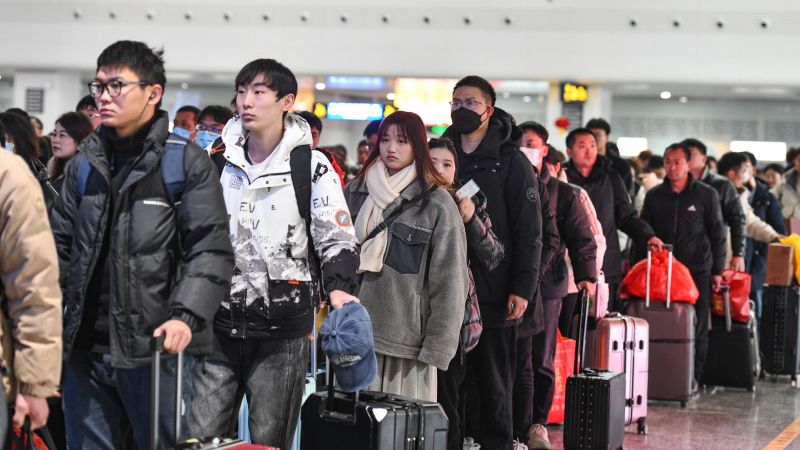
Recent data challenges the narrative of a soft landing for the US economy as inflation and consumer strength remain stagnant, leading economists to lower projections for GDP growth and the likelihood of interest rate cuts.

Advocates are calling for regulations that would require companies to inform consumers when they engage in shrinkflation, the practice of reducing product sizes without reducing prices, as an increasing number of countries take action against the deceptive tactic.

Maldives President Mohammed Muizzu is seeking financial aid from China and Islamic emirates in the Middle-East to address the country's looming debt crisis, with the Chinese debt alone constituting nearly 30% of its external debt.

The market capitalization of Tata Group companies has surpassed the GDP of Pakistan, with a combined value of over $365 billion compared to Pakistan's estimated GDP of around $341 billion, indicating the remarkable growth of the conglomerate.

Real wages in Russia have increased by 7.6% over the past year due to a labor shortage caused by the war, but inflation may be running too hot, prompting concerns of an overheating economy.
India's stock market is benefiting from investors diverting billions of dollars away from a slowing Chinese economy, driven by India's economic growth, large population, and policy reforms, although potential risks remain.

HSBC Holdings Plc boss Noel Quinn displayed confidence in the bank's strong earnings for 2023, but also warned of potential challenges ahead, including uncertainties in China and Hong Kong, and US-China tensions.

China's markets see modest gains after the Lunar New Year break, while Japan's Nikkei continues to surge; Nvidia's earnings will be a test for its high valuations; European data including flash PMIs and ECB surveys will be important later in the week.

Despite inflation and economic concerns, some Democratic voters like Nancy Pontius still hold confidence in the economy and plan to vote for Joe Biden again in the upcoming election, though doubts remain among the younger demographic who are less positive about the economy and its impact on their financial situations.

India's Tata Group, with a market capitalization of $365 billion, is now bigger than the entire economy of Pakistan, which has a GDP of around $341 billion and is facing economic challenges.

China's economy is facing headwinds as international investors pull out of Chinese stocks, the property market crisis continues, and consumer prices fall, leading to deflationary pressures; analysts suggest that Beijing needs to stimulate domestic consumption, but expectations are tempered by the government's aversion to large-scale social spending.

China's current account surplus reached $264.2 billion in 2023, with trade in goods surplus at the second highest level in history, indicating a strong economic recovery and steady foreign investment.
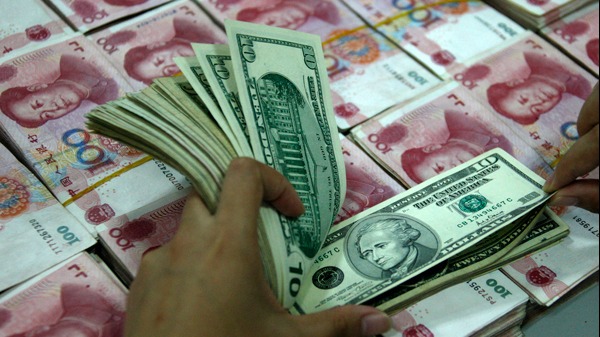
The newly formed weak coalition government in Pakistan, coupled with low forex reserves, will face challenges managing the pressure on the exchange rate amid increasing external debt servicing and a growing trade deficit.

Thailand's economy unexpectedly contracted in the fourth quarter of 2023, leading to pressure on the central bank to cut interest rates, as the prime minister argues for rate cuts to boost the crisis-hit economy.

The US commercial real estate turmoil, driven by reduced office demand and falling property values, is starting to have ripple effects globally, with banks in Japan, Germany, and elsewhere bracing for losses and concerns growing about broader contagion.

Pakistan is facing a severe debt crisis that is far worse than initially assessed, with the country on the brink of an inevitable default, according to an Islamabad-based think tank. The debt levels have reached alarming highs, impacting the stock market and requiring urgent reforms to avert an economic disaster.

Thailand's 2024 economic growth forecast has been downgraded after weaker-than-expected Q4 figures, with weak exports being a major factor.

The dollar remains steady as U.S. inflation data raises doubts about the Federal Reserve's easing cycle, while the yen hovers near the key 150 per dollar level, prompting concerns about possible intervention by Japanese authorities.

Oil prices fell amid concerns over sticky inflation and higher interest rates limiting fuel consumption growth, as reports of higher producer prices in the U.S. raised demand outlook worries.

Argentina's poverty level has reached its highest percentage in at least 20 years, with 57.4% of the population living in poverty, attributed to the devaluation of the peso and rising prices caused by President Milei's economic overhaul.

One of Australia's biggest banks, the Commonwealth Bank, predicts that mortgage holders could see up to six interest rate cuts by mid-next year in order to combat rising unemployment. The bank expects the Reserve Bank of Australia to begin slashing interest rates in September, with a total reduction of 0.75% by the end of 2024, to prevent a further rise in jobless numbers.

15 major cities in the United States require a higher income, ranging from $91,591 to $152,652, in order to escape the lower middle class, with Arlington, Virginia having the highest income threshold, according to a study by GOBankingRates.

The Chairman of the 16th Finance Commission, Dr. Arvind Panagariya, believes that India's pressing economic challenges include trade policy issues, labor law implementation, and problems in the land market, and highlights the need for liberalization, implementation of labor laws, privatization, and creating a more business-friendly environment to achieve a 10% economic growth rate and move the workforce from agriculture to industry and services.

The text is a brief overview of Daily Kos's commitment to supporting the Black community and their efforts in the upcoming elections.

Discretionary spending in India remains subdued in the mass markets, but premium brands and categories are experiencing robust demand, reflecting a consumption divide in the country. Lower-income households are most affected by high inflation and reduced ability to spend on discretionary items, while higher-income households are less impacted and continue to spend on premium products and experiences such as international travel and premium alcohol. Retailers are struggling to increase consumer transactions and are seeing a shift in spending towards travel and experiences rather than solely on products.

China's top officials are focusing on the economy as they hold tech and investment conferences across the country, with a particular emphasis on tackling domestic economic problems and boosting market confidence.

Investors hope positive momentum in Asian markets can continue, despite signs of stickier U.S. inflation and interest rates; China's reopening will offer insights, while Japan's Nikkei continues to rise.

President Joe Biden has criticized companies for shrinking product sizes, accusing them of corporate greed, but experts argue that companies are reducing product sizes in response to inflationary conditions exacerbated under Biden's administration.

Food prices in Nigeria have increased by 35.41% on a year-on-year basis, causing significant struggles for Nigerian households, with Kogi and Kwara topping the list of states with the highest food inflation rates.

Economists have lowered their estimates for India's current account deficit for FY24 due to a narrower trade deficit and higher services exports in January, but a stronger rupee is unlikely as the central bank may use the opportunity to boost reserves.

Prime Minister Christopher Luxon and Finance Minister Nicola Willis are acknowledging the fragile state of New Zealand's economy, with Luxon stating that tough choices are needed to restore it and Willis noting the high levels of debt and the need for careful choices in government spending; however, Labour leader Chris Hipkins argues that the economy is not as fragile as portrayed and that the National party is using this narrative to back out of their unaffordable tax cut promises.
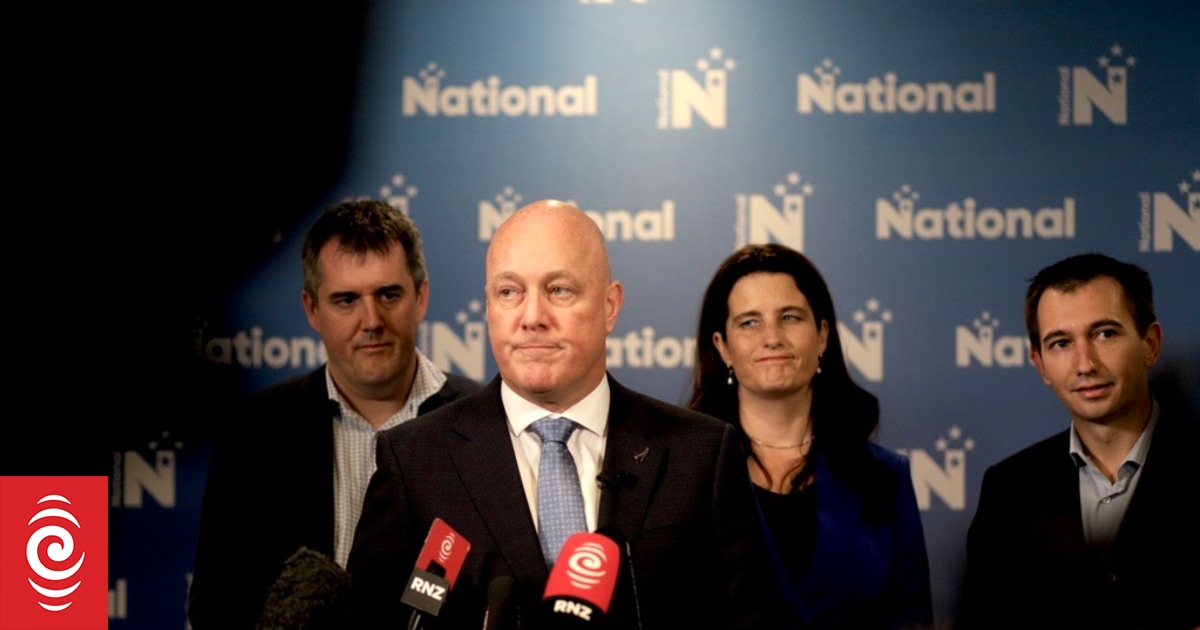
Despite the recent recession, experts believe that a strong recovery is unlikely for the UK economy, which has been facing stagnant growth and rising levels of poverty and inequality over the past two decades; to address these challenges, the next government should prioritize tackling inequalities and addressing the climate crisis through state-led investment in clean energy.

The poverty level in Argentina reached its highest point in at least 20 years, hitting 57.4% in January, mainly due to the devaluation of the peso currency and subsequent price hikes.

Successive governments have failed to allocate additional resources to education and healthcare sectors in their Budgets, despite the importance of these sectors for economic growth, according to experts speaking at a panel discussion on Union Budgets.
Oregon's exports took a 20% hit in 2020, losing over $6 billion and erasing two years of growth, due to reduced consumer spending.

Consumer spending during China's Lunar New Year surpassed pre-pandemic levels, with a significant increase in travel and tourism, benefiting sectors such as airlines, casinos, retail, and movie theaters.

India's G-20 Sherpa and former NITI Aayog CEO, Amitabh Kant, emphasized the need for annual growth of 9-10% and constant innovation in order for India to become a USD 35 trillion economy by 2047 and surpass Japan and Germany to become the second largest economy in the world.

The premiumization of the Indian economy, in which consumers buy more expensive products, is being touted as a key driver for listed companies and the stock market, but data suggests that this is only a small part of the overall economic picture, with a large section of the population still struggling and facing economic challenges.

Housing affordability in Canada's largest cities would require a 40% decline in house prices to restore to historical averages, according to economist Charles St-Arnaud.
Rising food inflation in Nigeria has led to unaffordability of basic food items, causing many households to struggle to meet their dietary needs.

Young adults' wealth has increased, but they are still unable to save due to higher expenses and growing inflation, leading them to prioritize enjoying their lives in the present.

The Federal Reserve may begin reducing its key interest rates from their 23-year high, but the process may be slower and less aggressive than expected, which could impact companies of all sizes and potentially affect mergers and acquisitions activity.
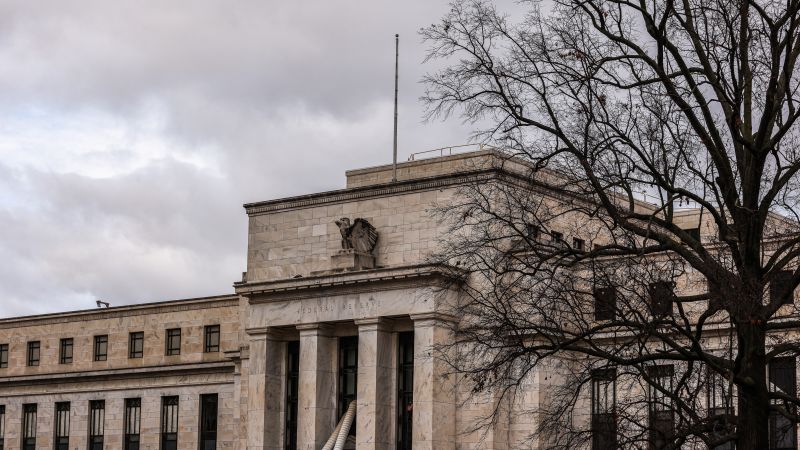
Minister for Lands and Natural Resources Samuel Abu Jinapor criticizes the National Democratic Congress (NDC) and its Flagbearer John Dramani Mahama's 24-hour economy policy, citing their previous failure to provide a 12-hour economy and their role in the dumsor crisis, concluding that they cannot be trusted with a 24-hour economy.

Foreign businesses' direct investment in China in 2023 was the lowest since the early 1990s, reflecting challenges for Beijing as it seeks more overseas investment to boost its economy.

Despite record-high employment rates and low unemployment rates in the EU, labor shortages persist in Europe across all skill levels, particularly in sectors like construction, healthcare, and STEM fields, exacerbated by an aging population and evolving skill requirements, leading to a reliance on migrant workers to fill these shortages, with gender segregation in the workforce further contributing to the issue. Amazon and Marriott International have both pledged to hire refugees to address labor shortages, while various countries in Europe, including Switzerland, Hungary, Belgium, Italy, Sweden, Austria, Spain, Slovakia, Romania, and the United Kingdom, are experiencing significant labor shortages in various sectors.

The Indian economy is growing fast, but it is mainly fueled by government investment rather than private investments and other growth drivers, making it difficult to sustain in the long term. Additionally, the benefits of this growth are not reaching the lower income segments of the population, hindering increased consumption. The trend of political parties offering freebies to woo votes is also concerning, as it diverts funds from crucial sectors such as education and infrastructure. Inflation remains a concern, particularly due to volatility in non-core prices. While growth forecasts are positive for the next 2-3 years, sustaining high growth rates in the medium to long term may be unrealistic. India's growth prospects are also linked to global growth, and it cannot be an "island of growth" in a declining world. Overall, there is a need for more equitable growth and thoughtful economic policies in India.

Cocoa production in Ghana and Ivory Coast, the world's second and first largest cocoa producers respectively, is declining due to factors such as climate change and the Cocoa Swollen Shoot Virus Disease (CSSVD), leading to rising prices and concerns about future supply.

The Saudi Ministry of Human Resources has clarified that payment of allowances in Saudi Arabia depends on the employment contract or the bylaws of the employing establishment.
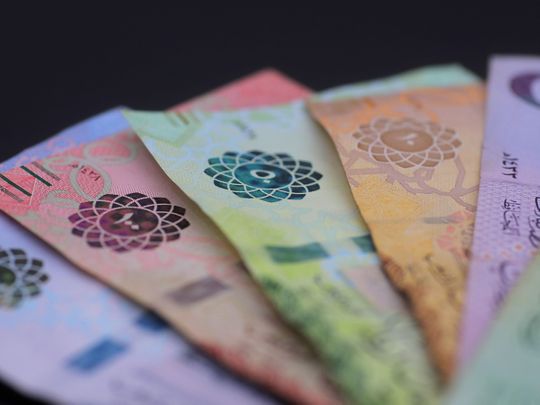
China's trust industry, a major part of the country's "shadow" banking sector, is under strain as an economic downturn and tighter government regulation threaten its stability, exemplified by the troubles faced by Sichuan Trust, which has caused thousands of investors to demand the return of their funds.
